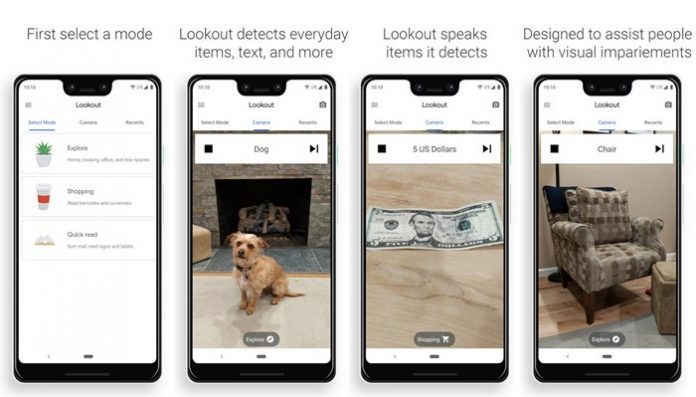About one in three people between the ages of 65 and 74 has hearing loss, and half of folks over 75 have difficult hearing. By 2055, based on World Health Organization estimates, about 900 million people worldwide will be living with hearing loss.
So Google deserves kudos for announcing two new Android applications designed to make life easier for deaf and hard-of-hearing people. One of the apps, Live Transcribe, turns live speech into real-time captions by using a phone’s microphone; the other, Sound Amplifier, improves a phone’s sound output.
Live Transcribe, which works on Android 5.0 Lollipop and up, will be available in 70 languages and dialects. It also has a type-back keyboard for users who cannot or do not want to speak, and works with external microphones to improve transcription accuracy.
Google has begun to roll out a limited beta version of the app gradually to users worldwide through its Play Store. Once on a phone, it can be activated from the Accessibility settings and launched from the Accessibility button on Android’s navigation bar.
However, there are limitation to Live Transcribe; for one, it does not work well in places where surrounding sound is too loud; it also requires internet access and so performs poorly if the phone has a weak signal. It can also have a problem with accents. In response to the surrounding sound problem, Google has added a visual indicator that displays the signal-to-noise ratio of a phone’s immediate environment, so an operator can gauge if the app is going to perform effectively or not.
The second app that Google launched last week is called Sound Amplifier and it basically makes a phone’s audio clearer and easier to hear. Wired headphones can be used to filter, augment and amplify the sounds around you. The app increases quiet sounds without boosting loud sounds. Sound enhancement settings can be customized, and noise reduction can be applied with simple sliders and toggles to minimize distracting background noise. The app is now available from the Play Store and is totally free.
Last year, Google also announced it was working on a new app named Lookout to help the visually-impaired. The app uses Artificial Intelligence (AI) to identify objects through the phone’s camera. It can also read text in signs and labels, scan barcodes, and identify currencies. This week, Google announced that Lookout will finally be available to download — though only for Pixel devices in the US.
Google cautions that, as with all new technology, Lookout’s results will not always be “100 percent perfect,” but it is soliciting feedback from early users.
To use Lookout, Google recommends that users wear their Pixel device on a lanyard around their neck or placed in the front pocket of a shirt or coat. That way, the phone’s camera gets an unobstructed view of the world and can identify objects and text “in situations where people might typically have to ask for help.”
It is not clear when Lookout will be available on hardware other than Google’s own, but the company says it’s hoping to bring the app “to more devices, countries, and platforms soon.”

















